Today we know with certainty that segregation is dead. The only question remaining is how costly will be the funeral
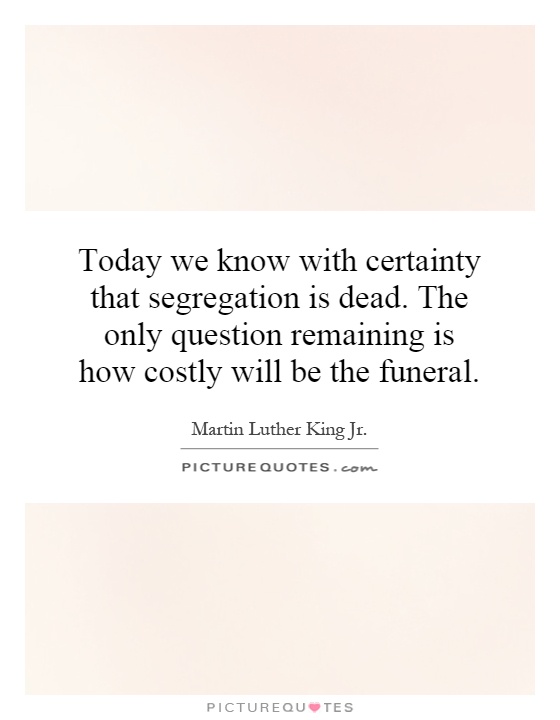
Today we know with certainty that segregation is dead. The only question remaining is how costly will be the funeral
The quote "Today we know with certainty that segregation is dead. The only question remaining is how costly will be the funeral" is a powerful statement that reflects the progress made in the fight against racial segregation, particularly in the United States. This quote is often attributed to civil rights leader Martin Luther King Jr., who dedicated his life to advocating for racial equality and justice.During the 1950s and 1960s, Martin Luther King Jr. was at the forefront of the civil rights movement, leading nonviolent protests and advocating for desegregation and equal rights for African Americans. His famous "I Have a Dream" speech, delivered during the March on Washington for Jobs and Freedom in 1963, called for an end to racial segregation and discrimination in the United States. King's leadership and activism played a crucial role in bringing about significant changes in American society, including the passage of the Civil Rights Act of 1964 and the Voting Rights Act of 1965.
The quote "Today we know with certainty that segregation is dead. The only question remaining is how costly will be the funeral" reflects the idea that the legal barriers to segregation have been dismantled, but that the legacy of segregation continues to impact society in various ways. While laws prohibiting segregation have been enacted, the effects of centuries of racial discrimination and inequality are still felt in areas such as education, housing, employment, and criminal justice.
Despite the progress made in the fight against segregation, racial disparities and injustices persist in American society. The quote serves as a reminder that the work of achieving true equality and justice is ongoing and that there is still much to be done to address the systemic racism that continues to affect marginalized communities.
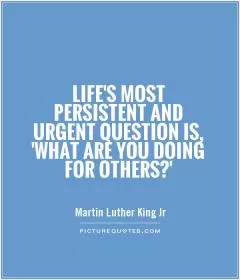
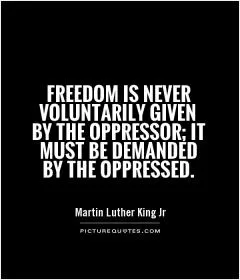
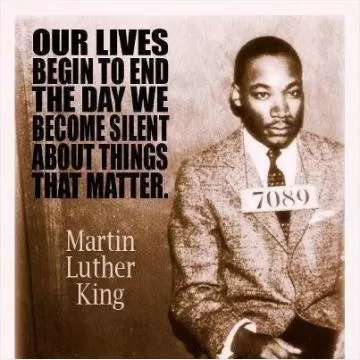
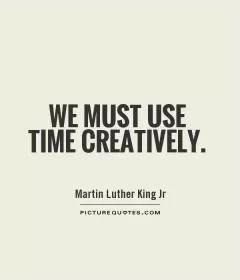
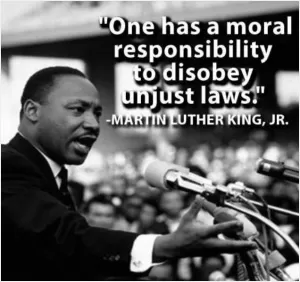
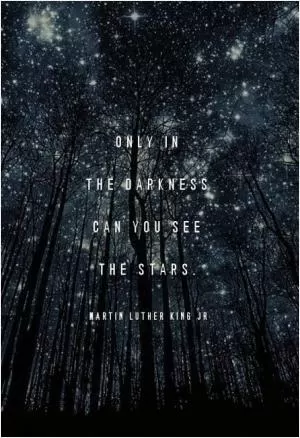
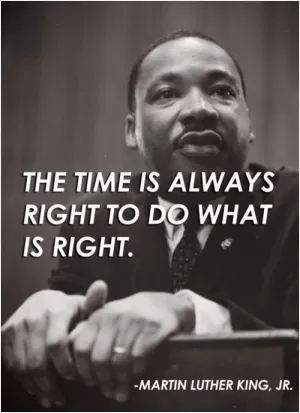
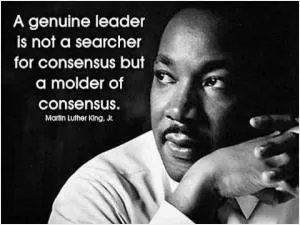

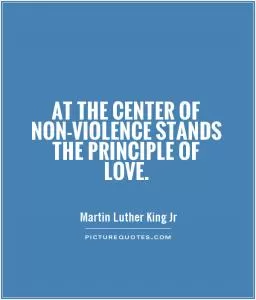
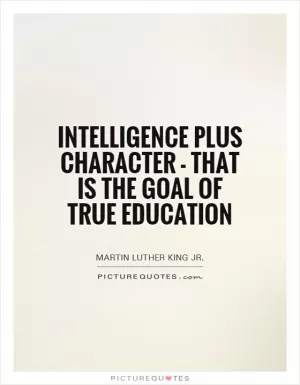
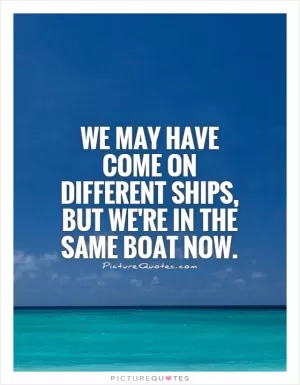
 Friendship Quotes
Friendship Quotes Love Quotes
Love Quotes Life Quotes
Life Quotes Funny Quotes
Funny Quotes Motivational Quotes
Motivational Quotes Inspirational Quotes
Inspirational Quotes